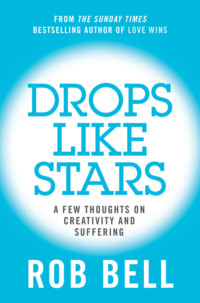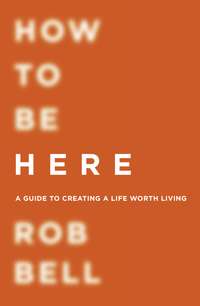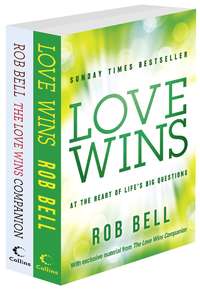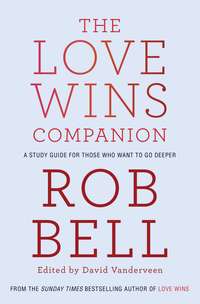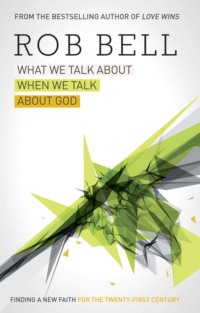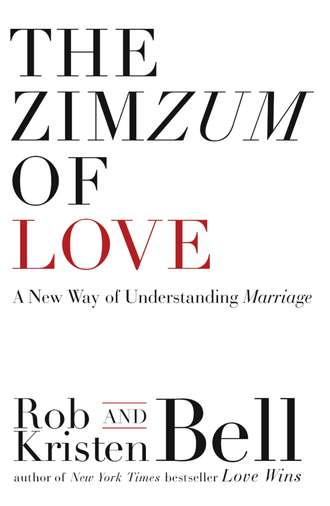
Полная версия
The ZimZum of Love: A New Way of Understanding Marriage
We loved this word zimzum, and we were struck with how well it describes what happens when you’re married. The more we talked about it, the more we found ourselves bending and stretching this word, making it our own.
You meet this person, you fall in love, and you zimzum—creating space for them to thrive while they’re doing the same for you. This zimzuming unleashes energy and creates space that didn’t exist before, generating the flow that is the lifeblood of marriage.
To illustrate how this flow works, we’ll explore four aspects of this space, space that is responsive, dynamic, exclusive, and sacred.
CHAPTER 2
RESPONSIVE
The space between you is extremely responsive.

We’ve drawn this image for responsive as a large, bold arrow toward the other person because everything you do and everything you are affects the flow between the two of you. It’s like a finely tuned radar, or the needle on a record player, the slightest notes and sounds amplified along with every bit of dust or the smallest scratch.
People often aren’t aware of just how responsive the space between them is. It matters what you say, it matters what you do, it matters how you think about this other person, it matters how you think about yourself. All of it, good and bad, shapes the flow between you.
To keep this energy field full of life and vitality, you intentionally act for their well-being. This movement is the foundation of your life together. It’s what everything rests on. It’s the engine, the catalyst, the energy that keeps the space between you humming. It’s what you return to again and again.
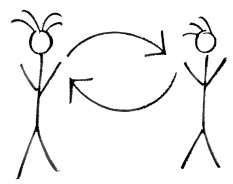
The arrow moves from you to them while another comes back to you. That’s how the flow starts, that’s how it’s sustained, and that’s how you get it going again when it’s blocked. You’re looking out for their best while they’re looking out for yours.
K: I don’t really enjoy talking on the phone. I’ll blame it on being an introvert. I much prefer face-to-face conversations. Transitions like ending a phone call are hard for me, and that combined with an overdeveloped sense of empathy can leave me feeling stuck for a painfully long time. Once in a while I’ll have to return a difficult call—something socially awkward or a call in which I have to say no to somebody—and it will haunt me all day. I tell you this because one day Rob brought home a jacket he’d just bought.
R: I remember that jacket. I loved that jacket. The salesman loved that jacket. Other people in the store loved that jacket.
K: And he put it on for me, and I immediately said No way.
R: She did. Not the slightest doubt. She just shut that jacket down.
K: It had a weird curve in the stitching on the back that just wasn’t right. It looked like a woman’s jacket.
R: You’re killing me right now.
K: No, I was saving you.
R: I’ve learned over time to trust her instincts; so I was fine taking it back. Except for one thing: I couldn’t face the salesman. He had been so excited about that jacket. This pains me to admit, but I couldn’t take that jacket back because I couldn’t face that salesman. How pathetic is that? So in the heat of the moment, desperate, I offered Kristen a deal.
K: Actually, I offered the deal: I’ll take back the jacket for you if you’ll do a hundred awkward phone calls for me.
R: I took that deal so fast. I still have something like ninety-six to go.
We realize this story is ridiculous.
K: I would have taken that jacket back for him without THE DEAL.
R: And I’ll make an awkward phone call for her anytime.
But we tell this story because there’s a back and forth, a give and take that happens when you zimzum.
You ask, What do you want? What do you need?
They tell you.
They ask you the same questions.
You answer.
They listen.
You talk about it.
You do things for each other.
You make deals, and then you laugh about how absurd it is to make deals because you would have done it anyway.
The arrows take you toward each other, creating a sense of momentum as the energy circulates in the space between you.
K: I was traveling in Europe a number of years ago and spent a few days with a newly married couple from the States who had moved there to work together. At one point I was having a meal with the wife and asked her what she saw herself doing in five years. I was surprised with her response, because she talked about living on a different continent, pursuing a degree in a field totally unrelated to the work they were currently doing. Because I had interacted with her husband before this and had heard some of his hopes and plans, I had the growing impression that they hadn’t talked about any of this with each other. They seemed to have lost the glue, the spark, the fire that brought them together in the first place, and they were headed in different directions.
To act, you first have to know.
You have to know what it looks like for them to thrive; you have to be aware of their goals and dreams; you have to know what they want and what they need and what makes them feel secure and what makes them happy and fulfilled.
It’s amazing how much can change between you when you ask, What do you need?
R: People used to hold up signs at football games that read “JOHN 3:16”—remember those? (The person holding the sign up was usually sitting next to the dude in the rainbow wig.) Those signs were referring to a verse in the Bible about how God loves the world so much that God sent God’s son. The big word in that verse is, of course, that. Divine love is the kind of love that does something.
K: It’s one thing to be in love; it’s another to act because of love. Love is a noun—a feeling you have—and it’s also a verb, something you do.
The space between you is highly responsive because it’s generative space—whatever you put into it multiplies exponentially.
Have you ever had an argument or a fight or an epic blowup and then later, when the dust settled and you talked about it, you realized that the whole thing started with something small?
An off-handed comment, a subtle slight, an expectation that wasn’t met, a job around the house that you kept avoiding—it wasn’t that big of a deal, but it grew and expanded and gained a head of steam as it completely changed the space between you. This is what happens in a generative space—things are magnified beyond their actual size.
One moment your marriage is pure joy, and the next sheer misery, the beautiful friendship and ease you had between you gone; you don’t even want to be in the same room.
This is why marriage can be so difficult and so great: the space that multiplies and magnifies any negativity between you also multiplies and magnifies the generous and kind things you do for each other.
R: We were in a surf shop, and I noticed the tide watch the guy behind the counter was wearing. (A tide watch tells you how high or low the water is, which affects when the waves are best for surfing.) Kristen apparently noticed me noticing his watch, because a few weeks later she gave me the same watch. I’ve been wearing it for years, and to this day, when I check the time, I’m struck by how often I think of her. It’s just a watch. But after twenty years together, it’s way more than just a watch—it’s a sign, a symbol, a reminder that this woman is looking out for me.
This generative space responds to whatever you put into it, magnifying the good things you do for each other as well as the negative things that echo between you. This is true for whatever you bring to the space, including the things that you aren’t aware of.
K: In the summer of 2004 Rob was speaking in California, and the boys and I joined him to make a family vacation out of it. One night on that trip he went to bed early without saying good night.
R: I was exhausted, and I was trying to fall asleep but I couldn’t because the television in the other room was so loud. Kristen was watching Letterman, and it sounded like she was turning the volume up.
K: Which I was. I was angry. But it actually went much deeper than that.
R: I was in that half-awake/half-sleep state, and Renée Zellweger was Dave’s guest and all I could think was, “Renée, please stop talking so loud.”
K: I was angry because he had energy for all of these other people but not for me. He had been distant for some time, and I wondered whether he still loved me. I thought, Maybe this is just how it is when you’ve been married for a while.
R: I didn’t have anything to give. I had been working too hard for too long, pushing myself beyond my limits.
K: It was hard for me to start the conversation because I wondered whether my fears were true—that his love for me had faded. But the next day when we started talking, it became clear that it had nothing to do with how he felt about me.
R: The real reason for our disconnection wasn’t my lack of love for Kristen—it was my emotional health. I was cooked, burned out, empty, exhausted, running on fumes, and up until that conversation I hadn’t been aware of how it was affecting both of us.
Your emotional health matters.
It matters when you meet someone, it matters when you’re committing to spend the rest of your life with that person, and it matters when you’ve been together for one or seven or twenty years. Whatever history and baggage and issues you bring to your marriage, they now belong to both of you because when you get married, whatever is yours is now ours.
We bring our entire selves to the space between us.
The arrow leaves you and extends to them—that’s how the flow is sustained. Whatever it is—unresolved issues with your family of origin, addictions, struggles, emotional scars, wounds from past relationships, regrets, destructive habits, unhealthy patterns of reaction or avoidance—it’s all there in the shared space between you.
You cannot keep your issues to yourself. The space is too responsive. It’s like a motion sensor, picking up the most subtle movements. You can’t hide anything, even if you think you’re hiding it.
It’s an illusion that whatever it is, “it doesn’t affect the marriage,” or “what they don’t know won’t hurt them,” or “it’s not a big deal.”
It does, it will, and it is.
You’re intentional about your own health because your marriage will only be as healthy as the least healthy one of you.
As counterintuitive as it may seem, taking care of yourself is one of the best gifts you can give the person you are married to. This includes exercising, eating well, getting enough sleep, engaging in regular practices that feed your soul—these are all essential to giving your best to the person you love.
This isn’t about perfection; it’s about the direction you’re headed in, the trajectory you’re on, both of you—and the two of you together—refusing to settle, pursuing the best possible life together.
Pain and discomfort and the gnawing sense that things could be better are your friends. They wake you up, they stir you to action, they motivate you to get help. This may mean initiating difficult conversations, finding help in a book or class or retreat, or seeing a therapist or doctor or spiritual director.
Sometimes a disruption is the best thing for the space between you.
R: That trip to California was a disruption for me. When we returned, I began to uncover with a counselor the reasons why I had been pushing myself so hard. It was life changing.
Sometimes the problem is you.
You brought something to the space that you haven’t dealt with, and it’s affecting you both. Until you deal with it, it will continue to have a negative effect on the flow between you. The space, however, is highly responsive, and it’s surprising how even the smallest steps toward health can significantly change things.

You zimzum, they zimzum, you know they’d do anything for you, you talk about what makes each of you thrive, the arrows go back and forth—that’s what creates the energetic flow between you.
But then there are the times when the arrows don’t feel equal. Times when you feel like you’re doing your part, but they aren’t doing theirs. In those moments it’s easy to become resentful, keeping track of who’s doing what, clutching your scorecard.
You know the scorecard, right?
The scorecard is how we keep track of how much we’re giving and how much they’re giving and who’s sacrificing more and who’s carrying more of the weight and who’s got the lighter load and who’s taken on more of the responsibility so that the other can pursue their goals and who’s working harder at the relationship and who owes more and who’s turn it is to empty the dishwasher. The scorecard is at the heart of an extraordinary number of fights; it lurks in the shadows of lots of heated discussions, and if it’s not addressed and is left unchecked, it can poison the space between you.
The scorecard is rooted in resentment, and the space between you is highly responsive to resentment. Even the slightest tremors of bitterness can block the flow of love.
Конец ознакомительного фрагмента.
Текст предоставлен ООО «ЛитРес».
Прочитайте эту книгу целиком, купив полную легальную версию на ЛитРес.
Безопасно оплатить книгу можно банковской картой Visa, MasterCard, Maestro, со счета мобильного телефона, с платежного терминала, в салоне МТС или Связной, через PayPal, WebMoney, Яндекс.Деньги, QIWI Кошелек, бонусными картами или другим удобным Вам способом.





